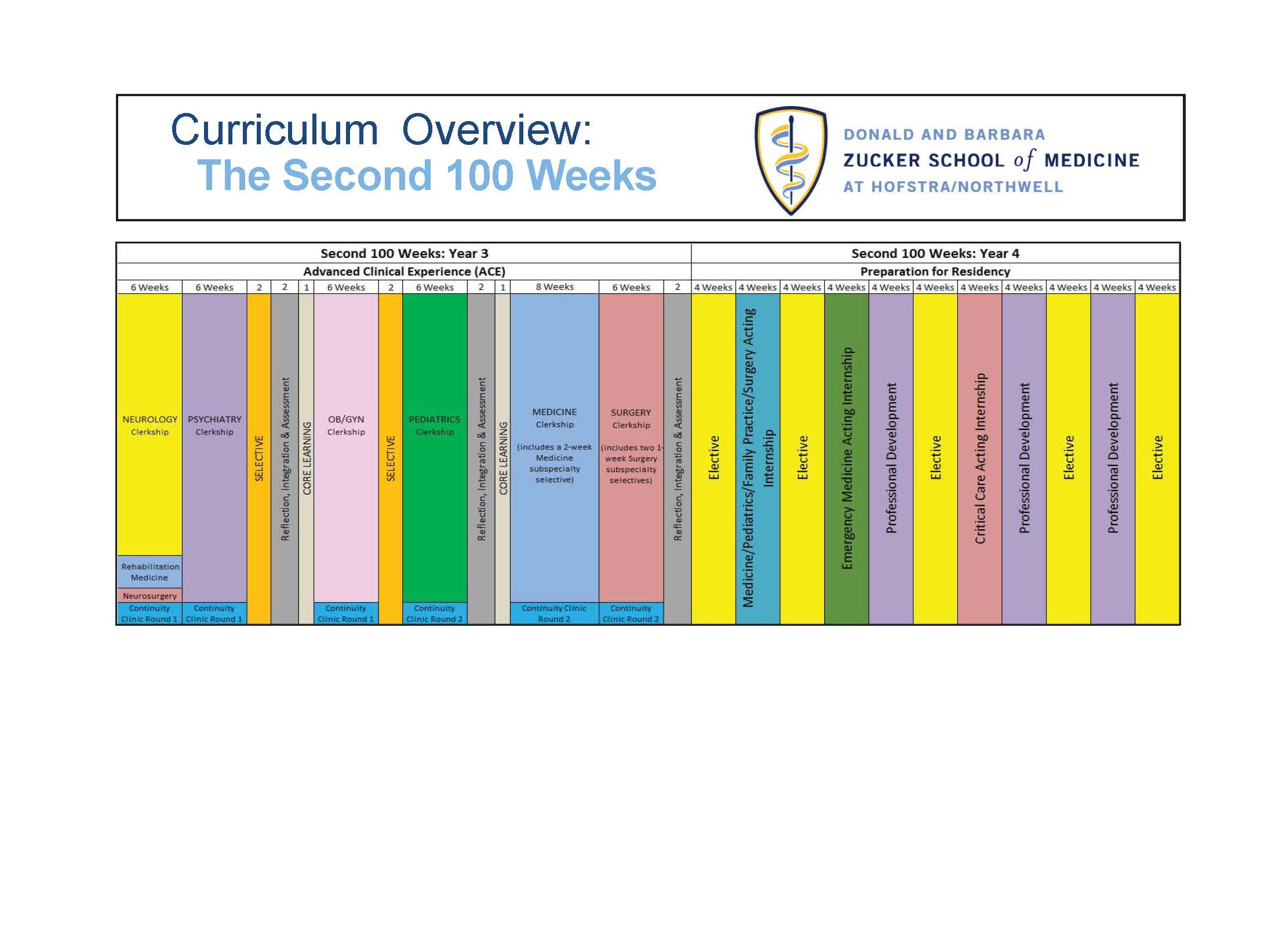Psychiatry Clerkship
Psychiatry clerkship is a six-week rotation consisting of a 4-week primary placement, followed by a 2-week secondary placement for all students. The Primary placement will either be in an Inpatient Unit at the Zucker Hillside Hospital, or with a Consultation-Liaison Psychiatry Team at LIJ or North Shore. Students who are with a Consultation-Liaison Psychiatry Team or on a subspecialty Inpatient Unit (Adolescent or Geriatric Psychiatry) as their primary placement will then be on an Adult Inpatient Unit for their secondary placement. Students who start on an Adult Inpatient Unit as their primary placement will then be on one of the following for their secondary placement: Consultation-Liaison Team, Emergency Psychiatry, or on a subspecialty Inpatient Unit.
In addition, all students will attend the following: Case-based learning sessions devoted to critical topics that may not have received sufficient and/or systematic attention on the units, ACE Rounds, Observation of ECT, Motivational Interviewing session, and Clinical skills sessions at CLI.
Questions?
If you have any questions about your role as educator, the following people serve as your resources:
- Tim Kreider: (insert description of role and preferred contact information)
- Melissa Pawelczak:
Pediatrics and Psychiatry, Co-Director, Advanced Clinical Experience
Melissa.A.Pawelczak@hofstra.edu
(561) 463-6338 - Ellen Pearlman:
Associate Dean for Professionalism and Doctoring Skills
R.E.Pearlman@hofstra.edu
(516) 463-7512
- Clerkship Goals
- Perform diagnostic assessments (by means of history gathering, review of symptoms, mental status examination) of patients with core psychiatric disorders in adults (major depression, schizophrenia spectrum disorders, bipolar disorder), geriatric adults (major depression, dementia), adolescents (autism spectrum disorders, affective disorders, psychosis), patients with addiction disorders (alcohol, opiate, cocaine), and patients with co-occurring medical conditions (depression, delirium, drug and alcohol withdrawal).
- Describe the pathophysiology and clinical course of patients with core psychiatric disorders.
- Demonstrate clinical interviewing skills appropriate to level of training, including performance of the mental status examination.
- Develop and defend a clinically meaningful differential diagnosis and demonstrate an understanding of treatment principles and develop a rudimentary treatment plan.
- Clinical Presentations & Procedures
Clinical Presentations
A: Assist P: Perform- Anxiety Disorder
- Bipolar and related Disorders
- Depressive Disorders
- Medication-Induced Movement Disorders and Other Adverse Effects of Medication
- Personality Disorders
- Schizophrenia Spectrum and Other Psychotic Disorders
- Substance-Related and Addictive Disorders
- Trauma- and Stressor-Related Disorders
- Assessment Methods
Assessment Methods
Students are assessed in a variety of ways to generate a grade in the Psychiatry Clerkship. As a faculty member or resident who is responsible for supervising a student, you will be expected to complete a “Clinical Assessment of Student” form. The questions/anchors can be found on the Second 100 Weeks assessment page.


